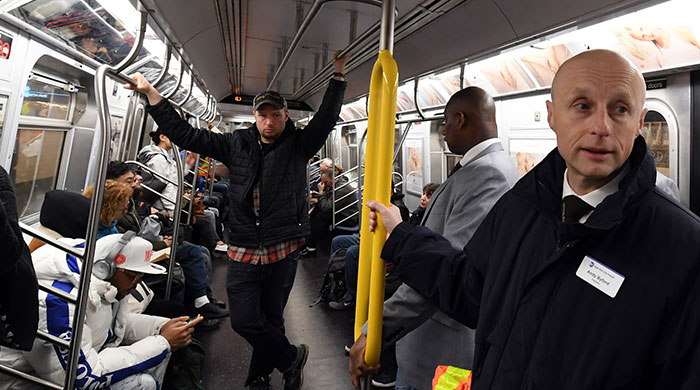Photo Courtesy of Marc Hermann/MTA New York City Transit
“This reorganization builds upon the progress made and will transform every aspect of our service and deliver modern, fully accessible transit to riders,” MTA New York City Transit President Andy Byford said.
By Michael V. Cusenza
The Metropolitan Transportation Authority Board has approved a comprehensive reorganization plan, the beleaguered agency announced last Wednesday afternoon.
The recommendations for this historic reorganization were made following an extensive evaluation process conducted by the consulting firm AlixPartners.
“The MTA’s reorganization plan is a good start, but now it comes down to execution and sound management,” said Gov. Andrew Cuomo. “The timelines should provide hard dates to assess progress.”
To that end, the MTA also released critical deadlines and milestones for several of the major initiatives to make the reorganization plan a reality.
“This reorganization builds upon the progress made and will transform every aspect of our service and deliver modern, fully accessible transit to riders,” MTA New York City Transit President Andy Byford said last Wednesday.
• According to the MTA, the transformation plan contains the following key recommendations:
In the new organization, the agencies should focus exclusively on service delivery, safety, day-to-day operations and maintenance, rather than general support functions.
• To address slow, costly, and bureaucratic processes and to create accountability, all Capital-related functions across the MTA should be merged into a central group. This new capital group will be accountable for planning, development, and delivery of the Capital Program. This group would identify optimal project delivery (groupings, timing, delivery), increase competition in a historically constrained supplier market, and complete important capital projects that improve service and customer experience quicker.
• To address many existing differing communication types (i.e., service updates, timetables, customer feedback, etc.) from several different agencies, MTA should centralize communications to clearly and consistently manage the message, medium and content.
• The MTA should create a centralized human resources department focused on attracting, developing, and retaining the talent required to improve MTA performance and service delivery. This new entity will be tasked with clearly articulating a new talent strategy. This will help to resolve issues of duplication and improve analytics, data consistency, and data integrity.
According to the MTA, to drive the transformation, the agency will require a selection of new leadership roles and capabilities:
• A Chief Operating Officer should lead the team of agency leaders including subway, commuter rail, bus, and bridge/tunnel transportation systems to deliver safe, reliable, and cost-effective transportation services. The COO will shape operations with a regional, multimodal view of service design and delivery.
• A Chief Transformation Officer is responsible for leading the execution of ongoing and new initiatives across the $18 billion enterprise. These efforts will include reorganization, development of strong center-led business functions, streamlining business processes, quality assurance and establishing internal controls. According to the MTA, the CTO will play a crucial role in quality assurance and should focus on building and embedding cross-functional capabilities that ensure intended results from vendors and suppliers, including on-time performance and accountability. Waste, fraud, abuse and possible legal violations remain the jurisdiction of the MTA Inspector General. However, the two offices could work collaboratively. This Chief Transformation Officer will report directly to the MTA Board and work closely with the MTA Chief Executive Officer and COO.
• To accelerate the creation of a fully accessible transit system, AlixPartners recommended that the MTA should hire the first-ever network-wide MTA Accessibility Officer reporting to the Chief Executive Officer.

